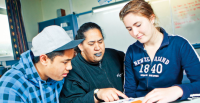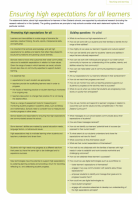Assessment Online
Information to help school leaders and teachers in gathering, analysing, interpreting, and using information about students' progress and achievement. The emphasis is on the formative use of assessment to improve students’ learning and teachers’ teaching as both respond to the information it provides.
Assessment for learning
This section of Assessment Online explores assessment for learning practices. At the heart of assessment for learning is the concept that students who truly understand and are involved in their learning will experience accelerated rates of achievement.
Gifted Learners
This website supports schools, teachers, students, and parents in assisting gifted and talented students to reach their full potential academically, emotionally, and socially.
Inclusive Education – Guides for schools
This site provides New Zealand educators with practical strategies, suggestions, and resources to support learners with diverse needs.
Pacific STEAM
Use the resource to encourage students to study Science, Technology, Engineering, Art, and Maths (STEAM) subjects and carry their ancestors' legacy into the future. Five short videos and downloadable posters that illustrate how Pacific peoples were always scientists, technologists, engineers, artists, and mathematicians.
Teacher Expectation Project
Completed in 2013, the three-year TEP evaluated the effects of raised expectations on student academic and social outcomes.




